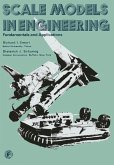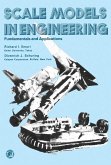This book is organized into three parts encompassing 28 chapters. The first part consists of presentations in systems approach to large-scale human and man-machine systems, benefit-cost models for decision makers, team decision models, and cubic interpolation processes. The contributors highlight the various theoretical aspects of the models and illustrate their scientific usefulness to many problems in the society. The second part explores the statistical models in the areas of scheduling systems, combat models, logistic structures, inventory systems, Bayesian and empirical Bayesian reliability models, parameter estimation schemes, and memory models. This part also presents a broad spectrum of mathematical sciences that illustrate the two main facts that make most problems, namely, the number of variates in the model and the degree of uncertainty. The third part is devoted to military presentations, emphasizing the problem in command, control, and communication. This part also considers the implementation of fuzzy sets in military command analysis, decision support in a conflict environment, and data-poor modeling.
Dieser Download kann aus rechtlichen Gründen nur mit Rechnungsadresse in A, B, BG, CY, CZ, D, DK, EW, E, FIN, F, GR, HR, H, IRL, I, LT, L, LR, M, NL, PL, P, R, S, SLO, SK ausgeliefert werden.









